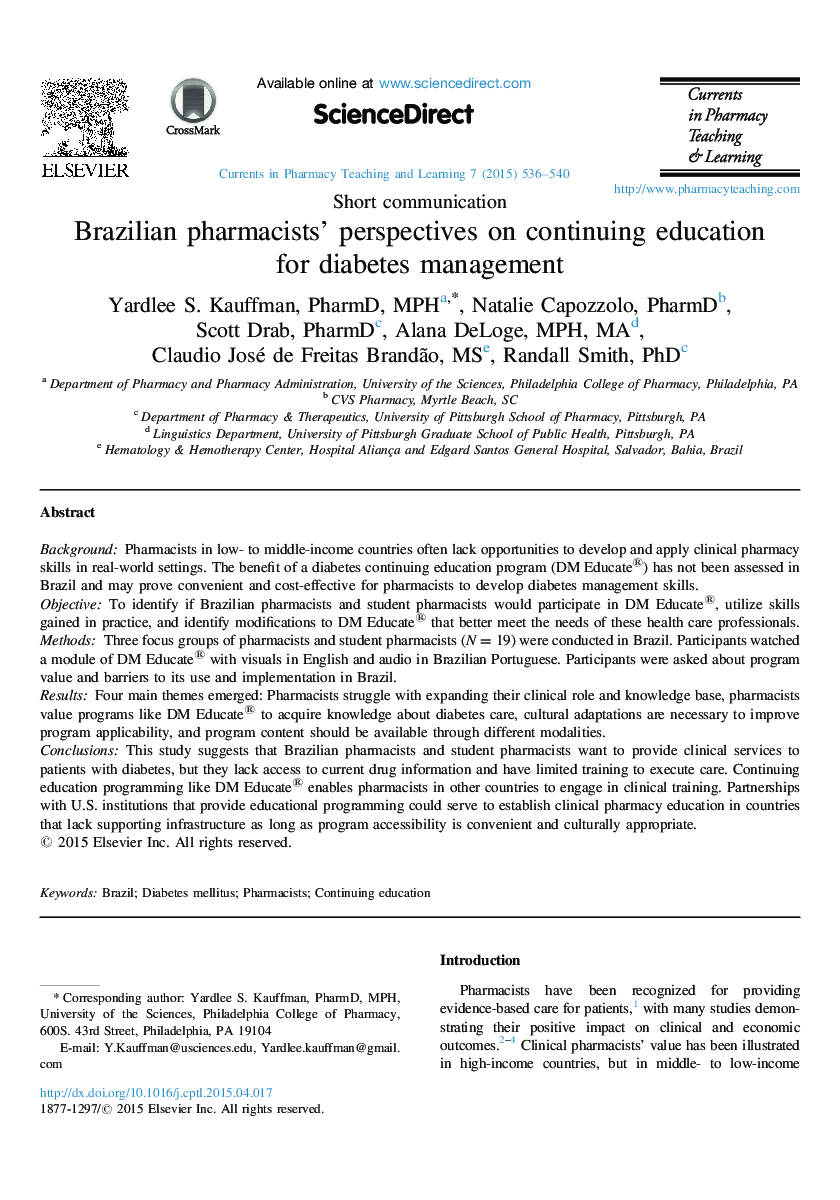| Article ID | Journal | Published Year | Pages | File Type |
|---|---|---|---|---|
| 352994 | Currents in Pharmacy Teaching and Learning | 2015 | 5 Pages |
BackgroundPharmacists in low- to middle-income countries often lack opportunities to develop and apply clinical pharmacy skills in real-world settings. The benefit of a diabetes continuing education program (DM Educate®) has not been assessed in Brazil and may prove convenient and cost-effective for pharmacists to develop diabetes management skills.ObjectiveTo identify if Brazilian pharmacists and student pharmacists would participate in DM Educate®, utilize skills gained in practice, and identify modifications to DM Educate® that better meet the needs of these health care professionals.MethodsThree focus groups of pharmacists and student pharmacists (N = 19) were conducted in Brazil. Participants watched a module of DM Educate® with visuals in English and audio in Brazilian Portuguese. Participants were asked about program value and barriers to its use and implementation in Brazil.ResultsFour main themes emerged: Pharmacists struggle with expanding their clinical role and knowledge base, pharmacists value programs like DM Educate® to acquire knowledge about diabetes care, cultural adaptations are necessary to improve program applicability, and program content should be available through different modalities.ConclusionsThis study suggests that Brazilian pharmacists and student pharmacists want to provide clinical services to patients with diabetes, but they lack access to current drug information and have limited training to execute care. Continuing education programming like DM Educate® enables pharmacists in other countries to engage in clinical training. Partnerships with U.S. institutions that provide educational programming could serve to establish clinical pharmacy education in countries that lack supporting infrastructure as long as program accessibility is convenient and culturally appropriate.
